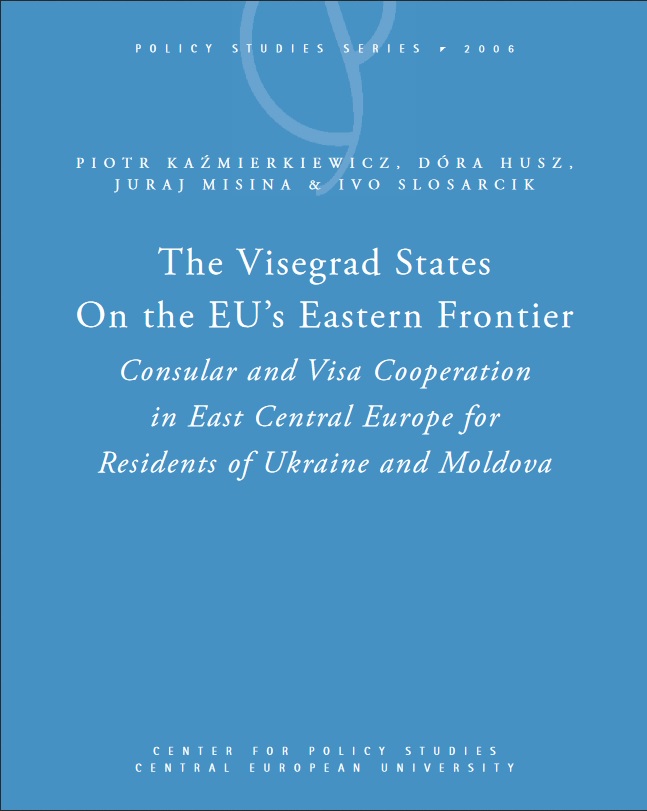This study takes a close look at the visa and consular policies of the Visegrad countries (V4) – the Czech Republic, Hungary, Poland and Slovakia – in the context of recent EU accession and the requirements of full integration into the Schengen system. For the Visegrad countries’ Eastern neighbours the requirement to obtain a visa, introduced by the V4 to comply with the EU’s Justice and Home Affairs acquis, in order to travel to the new member states was the single most disruptive aspect of EU enlargement. The principal aim of this study, undertaken by four research institutes from the four countries, is thus to assess the feasibility of closer co-operation among the Visegrad governments and authorities in order to improve access for the citizens of Ukraine and Moldova. The study starts from a review of the introduction of, and accumulated experiences with, the existing visa regimes of the four countries. This includes an analysis of the various solutions the V4 countries applied for mitigating the negative consequences of the visa requirement for travellers from countries to their East, and an assessment of the current practices of issuing visas as seen by both staff at consulates and the visa applicants themselves. The study then considers the background of Visegrad cooperation and analyses possible ways of enhancing it in the area of consular and visa policy vis-à-vis the Ukraine and Moldova. Finally, a number of concrete recommendations are put forward for policy-makers working in this area. [archive.ceu.hu]

